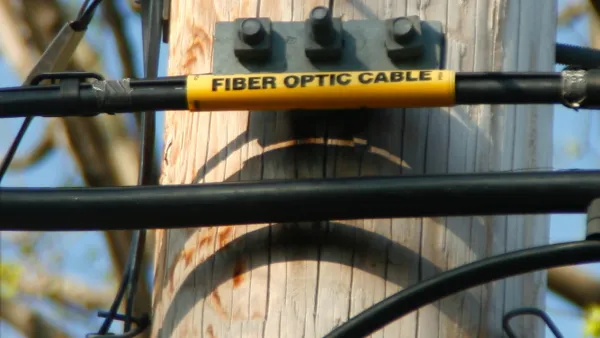More than 300,000 speed tests showed that six of the ten fastest internet service providers were locally run, including the fastest: Sonic in California.

Comcast and AT&T may be the biggest internet service providers (ISPs), but according to a study from PCMag neither crack the top ten fastest. In fact, private ISPs generally lagged behind their not-for-profit local counterparts. PCmag created a metric using upload and download speeds along with line performance to find the best ISPs and discovered six of the top ten spots on their list went to public local ISPs.
"When all regional ISPs were compared side by side, the fastest ISP in America was independent California ISP, Sonic, with a score of 610.6. Sonic has been working with select California communities to leverage their publicly-owned fiber networks,” Karl Bode writes for Vice.
Though local ISPs may lack the resources that mega-ISPs have, other factors allow them to provide faster internet. "Thanks to both corruption and limited competition, US broadband is routinely sluggish, pricey, with comically bad customer service. Frustrated by years of dysfunction, many towns and cities are either building their own broadband networks, developing local cooperatives, or striking partnerships with third party companies to build better networks than are currently available," Bode argues. In most states large ISPs have had success legislating their competitors out of business by making it difficult for municipalities to create ISPs or outlawing them all together.
FULL STORY: Locally Run ISPs Offer the Fastest Broadband in America

National Parks Layoffs Will Cause Communities to Lose Billions
Thousands of essential park workers were laid off this week, just before the busy spring break season.

Retro-silient?: America’s First “Eco-burb,” The Woodlands Turns 50
A master-planned community north of Houston offers lessons on green infrastructure and resilient design, but falls short of its founder’s lofty affordability and walkability goals.

Delivering for America Plan Will Downgrade Mail Service in at Least 49.5 Percent of Zip Codes
Republican and Democrat lawmakers criticize the plan for its disproportionate negative impact on rural communities.

Test News Post 1
This is a summary

Test News Headline 46
Test for the image on the front page.

Balancing Bombs and Butterflies: How the National Guard Protects a Rare Species
The National Guard at Fort Indiantown Gap uses GIS technology and land management strategies to balance military training with conservation efforts, ensuring the survival of the rare eastern regal fritillary butterfly.
Urban Design for Planners 1: Software Tools
This six-course series explores essential urban design concepts using open source software and equips planners with the tools they need to participate fully in the urban design process.
Planning for Universal Design
Learn the tools for implementing Universal Design in planning regulations.
EMC Planning Group, Inc.
Planetizen
Planetizen
Mpact (formerly Rail~Volution)
Great Falls Development Authority, Inc.
HUDs Office of Policy Development and Research
NYU Wagner Graduate School of Public Service




























